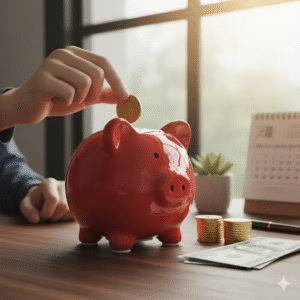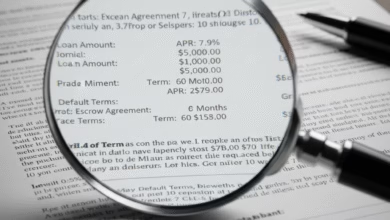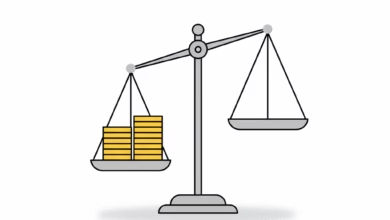How Overconfidence Can Ruin Your Investment Strategy
Learn how human confidence can affect the variety of your investments

You did it. You picked a stock, and it doubled. You sold, took the profit, and rolled it into another company you “had a good feeling about.” That one went up 40%. You’re on a hot streak. You’re not just guessing; you’re good at this. You’ve figured out the market. You’re a genius.
This feeling—this intoxicating cocktail of success, intelligence, and control—is the single most dangerous drug in the world of finance. It’s called overconfidence, and it is the silent killer of investment portfolios.
In a world where we are celebrated for being smart, decisive, and right, the stock market is a cruel teacher. It often rewards bad decisions (luck) before it punishes them, inflating our egos to a point where we become our own worst enemy. We abandon the very strategies that were designed to protect us, all because we start to believe we’re the exception to the rule.
This article isn’t about complex financial models. It’s about the flawed human psychology that can render even the best-laid plans useless. If you’ve ever felt like you “cracked the code” to investing, this is the most important article you will read this year.
What Is Overconfidence Bias in Investing (And Why Is It So Common)?

Overconfidence is a well-documented behavioral bias where a person’s subjective confidence in their own judgments is reliably greater than their objective accuracy. To put it simply: It’s the gap between what you think you know and what you actually know.
In most areas of life, confidence is a good thing. It helps you ask for a raise, start a business, or lead a team. In investing, it’s poison.
Why is it so rampant in the financial world?
- The Illusion of Control: The stock market gives us an illusion of control. We have fancy charts, 24/7 news, and trading apps that make us feel like we’re in the cockpit. We’re not. We are, at best, passengers reacting to the weather.
- Confusing Luck with Skill: This is the big one. If you flip a coin and get “heads” five times in a row, you’re not a “master coin-flipper.” You’re just lucky. In investing, a person can buy a random stock during a bull market, watch it go up, and attribute that success to their own “brilliant analysis” rather than the fact that everything was going up.
- The Dunning-Kruger Effect: This psychological principle states that people with low ability at a task often overestimate their ability. A little bit of knowledge is a dangerous thing. An investor who has just learned to read a stock chart may feel they’ve achieved a level of expertise that rivals Warren Buffett’s, making them uniquely vulnerable to catastrophic mistakes.
This bias isn’t just for beginners. In fact, it’s often worse for highly successful people in other fields.
The “Doctor Investor” Syndrome: Why Smart People Make Dumb Money Moves
A common archetype in financial planning is the “doctor investor” (or lawyer, engineer, or successful business owner). These are individuals who are brilliant, highly educated, and at the top of their very complex fields.
And they are often terrible investors.
Why? Their success in one domain creates a powerful overconfidence that they can easily master another. Their thinking goes: “I can perform open-heart surgery. How hard can picking a few stocks be? It’s certainly not rocket science… and I’m a rocket scientist!”
This leads them to:
- Dismiss the “boring” advice of buying and holding index funds.
- Get pitched on “exclusive” or highly complex, high-fee investments.
- Believe they can outsmart the entire market, which is made up of millions of other brilliant people, supercomputers, and full-time professionals.
Their professional ego prevents them from accepting the most humbling truth of investing: The simplest strategy (and the one that requires the least “genius”) is almost always the most effective.
The 5 Warning Signs: How to Spot Overconfidence in Your Own Strategy
Overconfidence is sneaky. It doesn’t announce itself; it whispers in your ear that you’re special. Here are the red flags to watch for in your own behavior.
1. You Are Trading Frequently (Over-Trading)
You’re no longer an “investor”; you’re a “trader.” You’re in and out of stocks, trying to catch small waves. Overconfident investors believe they can predict short-term market moves. The reality is that no one can. This “churn” in your portfolio does two things:
- It racks up transaction fees, eating into your returns.
- It creates a tax nightmare, as short-term capital gains are taxed at a much higher rate than long-term gains.
2. Your Portfolio Is Highly Concentrated
Diversification is the only free lunch in investing. It’s the act of spreading your money across many different assets to reduce risk.
The overconfident investor hates diversification. Why would they buy 500 stocks in an S&P 500 index fund when they know which 3 or 4 are going to be the real winners? They put 25%, 50%, or even 100% of their money into one or two “sure things.” This is not investing; it’s gambling. If that one “sure thing” fails, their entire financial plan is ruined.
3. You Ignore Data That Contradicts Your Beliefs
This is Confirmation Bias, overconfidence’s evil twin. You have a “pet stock” you love. You exclusively read articles, watch videos, and follow “gurus” who also love that stock.
When a negative earnings report comes out, or a research firm issues a “sell” rating, you dismiss it. “They don’t understand the vision.” “They’re just trying to scare people.” You filter reality to fit your narrative, ignoring the blaring red flags telling you to get out.
4. You Are Trying to “Time the Market”
You’re convinced a crash is coming. You sell all your stocks and move to cash, planning to “buy the dip.” Or, you’re sitting on a pile of cash, waiting for the perfect moment to jump in.
Market timing requires two impossible-to-replicate-correctly decisions:
- Knowing the exact right time to sell (the top).
- Knowing the exact right time to buy back in (the bottom).
Overconfident investors think they can do this. They can’t. They almost always sell too late and buy back in way too late, missing the recovery and locking in their losses.
5. You Have “Attribution Bias”
When you have a big win, you credit your skill, intelligence, and insight.
When you have a big loss, you blame bad luck, “market manipulation,” or a “black swan” event.
This mental shortcut prevents you from ever learning from your mistakes. If all your wins are due to your genius and all your losses are due to bad luck, you have no reason to change your strategy. You’ll just keep making the same overconfident mistakes, convinced it’s the world that’s wrong, not you.
The Financial “Sins” of Overconfidence: How It Systematically Destroys Your Returns

Let’s move from the psychological to the practical. How does this ego-driven behavior literally take money out of your pocket?
The High Cost of Hyperactivity (Fees and Taxes)
A landmark study called “Trading is Hazardous to Your Wealth” by professors Barber and Odean analyzed the accounts of thousands of investors. Their conclusion was blunt: the investors who traded the most, earned the least.
Why? Fees and taxes. Let’s say you have a $100,000 portfolio and you make 50 trades in a year. Even with $5 commissions, that’s $250. But the real killer is the bid-ask spread and, most of all, taxes. Selling a stock you’ve held for less than a year triggers short-term capital gains, which are taxed at your ordinary income tax rate (e.g., 24%, 32%, etc.). Long-term gains (held over a year) are taxed at much lower rates (0%, 15%, or 20%).
Overconfidence makes you a short-term trader, which means you’re giving a huge chunk of your profits straight to the IRS.
Underestimating Risk: The “Sure Thing” That Isn’t
Overconfidence leads to a catastrophic failure of risk management. You underestimate the probability of a bad outcome and overestimate the probability of a good one.
You might, for example, invest in highly speculative assets like penny stocks, complex options, or leveraged ETFs, believing you “understand them” and can manage the risk. But leveraged products can wipe you out in a single day. The overconfident investor doesn’t see the 99% chance of failure; they only see the 1% chance of a 10,000% return.
Holding Losers Too Long (The “It’ll Come Back” Fallacy)
Your ego hates to be wrong. When one of your “genius” picks starts to fall, selling it would mean admitting a mistake.
So, you don’t. You hold on. It falls 20%. “It’s just a dip.” It falls 40%. “I’ll buy more to average down!” It falls 80%. “It has to come back eventually.”
Your ego has turned a small, manageable loss into a catastrophic, portfolio-crippling one. A humble investor would have cut their losses early, admitting their thesis was wrong and moving on.
Real-World Catastrophes Fueled by Overconfidence
If you think this only happens to small-time investors, think again. Overconfidence has blown up some of the biggest and “smartest” funds in history.
Case Study 1: The Meme Stock Frenzy (2021)
In 2021, a wave of retail investors, new to the market and super-charged by social media, piled into stocks like GameStop (GME) and AMC. They were armed with a little knowledge (about “short squeezes”) and a massive, collective overconfidence. They believed they were “Apes” who had found a “cheat code” to the market.
Many who got in early made fortunes. But the overconfidence that this created—the belief that “stocks only go up” and that they could “HODL” (Hold On for Dear Life) forever—was disastrous. Many new investors, gripped by FOMO, bought in at the absolute peak (GME at $480). They ignored all fundamentals, all historical precedent. When the bubble burst, as all bubbles do, countless “paper millionaires” saw their life savings evaporate.
Case Study 2: The “Smartest Guys in the Room” (Long-Term Capital Management)
If you want the ultimate tale of overconfidence, look no further than Long-Term Capital Management (LTCM) in 1998. This hedge fund wasn’t run by amateurs; it was run by a “dream team” that included two Nobel Prize-winning economists.
They were, literally, the “smartest guys in the room.”
Their models were so “brilliant” and “infallible” that they believed they had eliminated risk. This overconfidence led them to use extreme leverage—for every $1 of their own money, they borrowed over $100. Their strategy worked perfectly… until it didn’t.
In 1998, a “once-in-a-thousand-year” event (a Russian bond default) happened, and their models broke. The fund began to hemorrhage hundreds of millions of dollars per day. The firm’s collapse was so massive that it threatened the stability of the entire global financial system, forcing the Federal Reserve to step in and orchestrate a massive bailout.
If two Nobel Prize winners can be so overconfident that they nearly tank the world economy, what does that say about our “good feeling” about a tech stock?
How to Build an “Ego-Proof” Investment Strategy: Your Action Plan

You cannot eliminate your ego, but you can build a system that cages it. A successful investment strategy is not about being smart; it’s about being disciplined.
1. Create a Written Investment Policy Statement (IPS)
This is your financial constitution. Before you feel the high of a win or the panic of a loss, you write down your plan in a state of calm, rational (System 2) thought.
Your IPS should include:
- Your Goals: (e.g., “Retire in 30 years,” “Save for a house down payment.”)
- Your Risk Tolerance: (e.g., “I can stomach a 30% drop without panic-selling.”)
- Your Strategy: (e.g., “I will invest 90% in a global stock index fund and 10% in a bond fund.”)
- Your Rules: (e.g., “I will rebalance once per year. I will not sell during a crash. I will not buy individual stocks.”)
When you feel the itch to trade, you must first consult your IPS. It’s the ultimate check against emotional, ego-driven decisions.
2. Embrace “Boring”: The Power of Index Funds
The overconfident investor wants to pick winners. The humble, successful investor just wants to own the whole market.
Buying a broad-market index fund (like one that tracks the S&P 500 or the total world stock market) is the ultimate act of humility. It’s an admission that you don’t know which stock will be the next Amazon, so you’re just going to buy all of them. Year after year, this simple, “boring” strategy outperforms the vast majority of “genius” stock pickers and professional fund managers.
3. Automate, Automate, Automate
The best way to defeat your ego is to remove yourself from the equation. Set up an automatic contribution from every paycheck that goes directly into your investment account. This is Dollar-Cost Averaging (DCA).
It forces you to buy consistently, whether the market is high or low. It prevents your overconfident brain from trying to “time” your purchases. It’s a system that runs on autopilot, immune to your feelings.
4. Keep an Investment Journal
This is a powerful tool. When you buy or sell an asset, write down why.
- “I am buying 10 shares of XYZ because I’ve done the research, and their P/E ratio is low, and I plan to hold for 10 years.”
- …or…
- “I am buying XYZ because everyone on social media is talking about it, and I have FOMO.”
A year later, you can review this journal. You will quickly see which decisions were rational and which were purely emotional. This builds self-awareness and helps you identify your own worst-performing (overconfident) patterns.
Your Biggest Enemy Is in the Mirror

In the investing world, confidence is cheap. Humility is rare and priceless.
The market does not care how high your IQ is, what degree you have, or how successful you are in your career. It is a relentless, impersonal machine that transfers wealth from the impatient to the patient, and from the overconfident to the disciplined.
The path to long-term wealth is not about finding the “next big thing” or proving you’re a genius. It’s about accepting your own human fallibility. It’s about building a robust, diversified, and automated plan—a plan that is so simple and strong that it can protect your money from the one person who poses the greatest threat to it: you.
Check your ego at the door, stick to the plan, and let the miracle of compounding do the heavy lifting.





